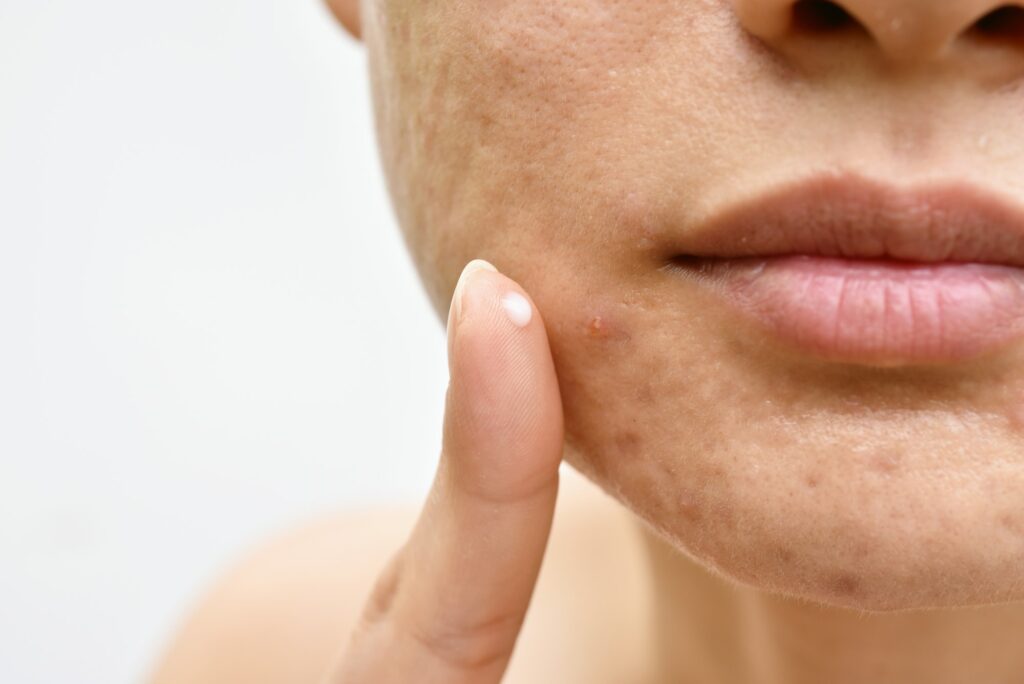The smart Trick of benzoyl That No One is Discussing
The smart Trick of benzoyl That No One is Discussing
Blog Article

Allergic Reaction to Acne Medication
Acne is a typical skin affliction that influences many individuals throughout the world. Although you'll find many remedies out there, ranging from over-the-counter creams to prescription remedies, not all therapies are suitable for everyone. One important issue could be the possible for an allergic response to acne medication. This information will investigate what an allergic reaction to acne medication involves, the symptoms to watch out for, and how to control and stop these types of reactions.
Comprehension Allergic Reactions
An allergic reaction happens if the immune procedure mistakenly identifies a harmless compound as a threat and responds by releasing chemical substances like histamines. These chemical substances result in signs that could range from mild to severe. With regards to acne medication, the ingredients in these products and solutions can from time to time bring about an allergic response.
Widespread Acne Medicines
Before diving into allergic reactions, It is really necessary to know the kinds of acne medicines that are commonly used:
Benzoyl Peroxide: An in excess of-the-counter treatment that kills microorganisms and dries out the pores and skin. Salicylic Acid: Another above-the-counter possibility that helps to exfoliate the skin and unclog pores. Retinoids: Prescription remedies that promote cell turnover and prevent clogged pores. Antibiotics: Equally topical and oral antibiotics is often prescribed to lower microbes and inflammation. Hormonal Treatment plans: Remedies like delivery Regulate drugs that regulate hormones and cut down acne.
Signs of the Allergic Response to Acne Medication
Recognizing the signs of the allergic reaction to acne medication is crucial for well timed intervention. Signs and symptoms can vary depending upon the specific and the precise medication but typically include:
Pores and skin Redness: Purple, inflamed pores and skin is a common indicator of the allergic response. Itching: Persistent itching can suggest an allergic response. Swelling: Swelling of the confront, lips, or tongue generally is a severe symptom. Rash: A rash or hives may well establish on the pores and skin. Difficulty Respiratory: In intense conditions, an allergic response might cause issues breathing, which requires immediate professional medical notice.
Circumstance Scientific tests and Stats
To raised fully grasp the prevalence and effect of allergic reactions to acne medication, let's look at some scenario research and data:
Situation Review one: Benzoyl Peroxide Allergy
A 17-yr-aged female commenced employing a benzoyl peroxide-based acne remedy. In just a couple of days, she observed significant redness and itching on her facial area. On consulting a dermatologist, she was diagnosed with the allergic reaction to benzoyl peroxide. She was suggested to discontinue the medication and switch to some milder, non-allergenic treatment method.
Situation Research 2: Retinoid Response
A 22-calendar year-aged male was prescribed a retinoid product for significant acne. After a 7 days of use, he developed a rash and swelling around his eyes. His dermatologist verified an allergic reaction for the retinoid and advised an alternative treatment approach.
Stats
In accordance with a study posted from the Journal in the American Academy of Dermatology, roughly five-ten% of individuals applying topical acne solutions expertise some method of allergic reaction. When most reactions are mild, about 1-2% of conditions could be intense, requiring quick professional medical intervention.
Taking care of Allergic Reactions
If you suspect you are suffering from an allergic response to acne medication, It is really vital to take instant action:
Discontinue Use: Cease using the medication right away.Seek advice from a Healthcare Expert: Seek advice from the dermatologist or healthcare service provider. Use Antihistamines: Above-the-counter antihistamines might help ease gentle symptoms. Use Chilly Compresses: Chilly compresses can minimize swelling and itching. Find Emergency Treatment: Should you encounter significant symptoms like issues respiratory, look for unexpected emergency clinical treatment instantly.
read this
Protecting against Allergic Reactions
Avoidance is often much better than cure. Here are some ideas to help you protect against allergic reactions to acne medication:
Patch Exam: Always perform a patch test before employing a new acne medication. Implement a small amount to the discreet place of skin and wait 24-forty eight hours to see if any response occurs.Examine Labels: Carefully browse the ingredient record on acne drugs to identify probable allergens. Consult with a Dermatologist: Before beginning any new therapy, consult with a dermatologist to make certain It is really ideal for your skin form. - Commence Slowly but surely: Introduce new medicines little by little to observe how the skin reacts.
Use Hypoallergenic Products: Opt for hypoallergenic acne treatment options which can be less likely to trigger allergic reactions.
Substitute Treatment options
For those who have knowledgeable an allergic response to regular acne drugs, you'll find alternative treatment plans readily available:
Purely natural Cures: Elements like tea tree oil, aloe vera, and honey have anti-inflammatory and antibacterial properties which will help treat acne devoid of causing allergic reactions. Light-weight Therapy: Blue mild therapy can eliminate acne-producing germs without the utilization of chemical compounds. Dietary Changes: Often, dietary improvements may also help manage acne. Decreasing sugar and dairy intake continues to be shown to improve pores and skin wellbeing in a few folks.
Summary
Allergic reactions to acne medication is often distressing, but They can be manageable with the right awareness and safeguards. By knowing the signs and symptoms, getting quick motion, and consulting healthcare gurus, it is possible to successfully regulate and prevent allergic reactions. Generally carry out patch assessments, read labels, and check with a dermatologist before beginning any new therapy. If classic acne remedies usually are not suited to you, consider substitute therapies which have been not as likely to cause allergic reactions. Your journey to distinct skin does not have to generally be hindered by allergy symptoms; with the ideal solution, you can find a procedure that actually works to suit your needs. Report this page